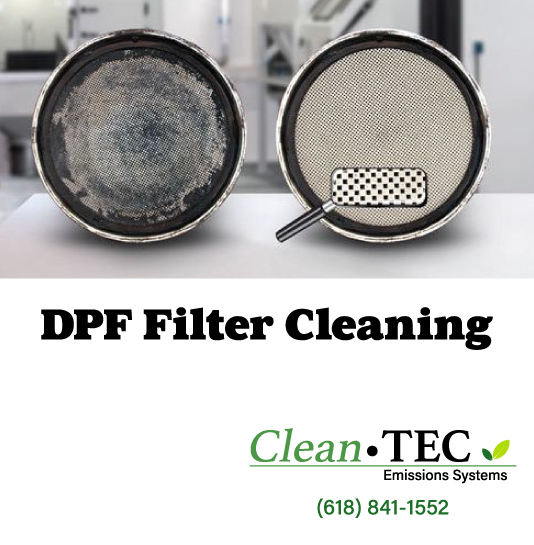Fuel efficiency is a critical concern for any commercial semi truck operator. Not only does improved fuel efficiency reduce operating costs, but it also helps in meeting US government clean engine standards. One key component in achieving these goals is maintaining a clean Diesel Particulate Filter (DPF). CleanTEC DPF Cleaning in Metropolis, Illinois, is your trusted partner in ensuring your semi truck’s engine runs efficiently and meets all regulatory requirements.
Understanding Fuel Efficiency and Clean Engine Standards
Fuel efficiency in semi trucks directly impacts operational costs. A truck that consumes less fuel per mile can significantly reduce expenses, contributing to higher profitability. Additionally, US government regulations mandate that commercial vehicles meet stringent emissions standards to minimize environmental impact.
The Diesel Particulate Filter (DPF) plays a vital role in this regard. The DPF captures and stores soot and particulate matter from the engine’s exhaust gases, preventing these pollutants from entering the atmosphere. Over time, the DPF can become clogged, reducing engine efficiency and increasing fuel consumption. Regular cleaning of the DPF is essential to maintain fuel efficiency and compliance with emission standards.

Tips to Improve Fuel Efficiency
- Regular DPF Cleaning
- Ensuring your DPF filter is clean is one of the most effective ways to improve fuel efficiency. A clogged filter forces the engine to work harder, consuming more fuel. CleanTEC DPF Cleaning in Metropolis, Illinois, offers professional DPF cleaning services to keep your filter in optimal condition. Schedule a cleaning with CleanTEC to enhance your truck’s performance and fuel efficiency.
- Proper Tire Maintenance
- Keeping your tires properly inflated and aligned can significantly improve fuel efficiency. Under-inflated tires increase rolling resistance, making the engine work harder and consume more fuel. Regular tire checks and maintenance can lead to noticeable fuel savings.
- Aerodynamic Enhancements
- Installing aerodynamic devices such as side skirts, trailer tails, and gap reducers can reduce wind resistance, improving fuel efficiency. These modifications help your truck cut through the air more smoothly, requiring less fuel for the same distance traveled.
- Regular Engine Maintenance
- Routine maintenance, including oil changes, air filter replacements, and checking fuel injectors, ensures that your engine runs efficiently. A well-maintained engine operates more smoothly and consumes less fuel. Make sure to adhere to your maintenance schedule to keep your engine in top shape.
- Reduce Idle Time
- Excessive idling wastes fuel and increases engine wear. Encourage drivers to turn off the engine during prolonged stops and consider investing in auxiliary power units (APUs) to provide power without idling the engine.
- Use Cruise Control
- Utilizing cruise control on highways can help maintain a consistent speed, reducing unnecessary acceleration and deceleration. This steady pace can improve fuel efficiency by optimizing engine performance.
- Driver Training
- Educate your drivers on fuel-efficient driving techniques. Smooth acceleration, maintaining consistent speeds, and anticipating traffic flow can all contribute to better fuel economy. Training programs can make a significant difference in overall fuel efficiency.
Meeting US Government Clean Engine Standards
- Compliance with Emission Regulations
- The US Environmental Protection Agency (EPA) sets strict emissions standards for commercial vehicles to reduce air pollution. Regular DPF cleaning helps ensure that your truck meets these standards by effectively trapping harmful pollutants. Contact CleanTEC DPF Cleaning in Metropolis, Illinois, to schedule a DPF cleaning and keep your vehicle compliant.
- Adopting New Technologies
- Invest in newer, more efficient engine technologies that are designed to meet or exceed current emission standards. These engines often come with advanced emission control systems, including more efficient DPFs and selective catalytic reduction (SCR) systems.
- Regular Emissions Testing
- Participate in regular emissions testing to ensure your vehicle meets all regulatory requirements. CleanTEC can assist in maintaining your DPF filter, which plays a crucial role in passing these tests. Ensure your truck is always compliant by scheduling regular maintenance with CleanTEC.
- Record Keeping
- Maintain thorough records of all maintenance and repairs, including DPF cleanings. This documentation can be crucial in demonstrating compliance with government regulations and can protect your business in the event of an audit.
For truck operators looking to improve fuel efficiency and comply with US government clean engine standards, regular DPF maintenance is essential. CleanTEC DPF Cleaning in Metropolis, Illinois, offers expert services to keep your DPF filter clean and your engine running smoothly. Contact CleanTEC today to schedule your DPF cleaning and ensure your semi truck operates at peak efficiency.
By prioritizing fuel efficiency and adhering to emission standards, you not only save on operating costs but also contribute to a cleaner environment. Take action now and partner with CleanTEC DPF Cleaning in Metropolis, Illinois, to keep your commercial semi truck in top condition. Your engine, your wallet, and the environment will thank you.
